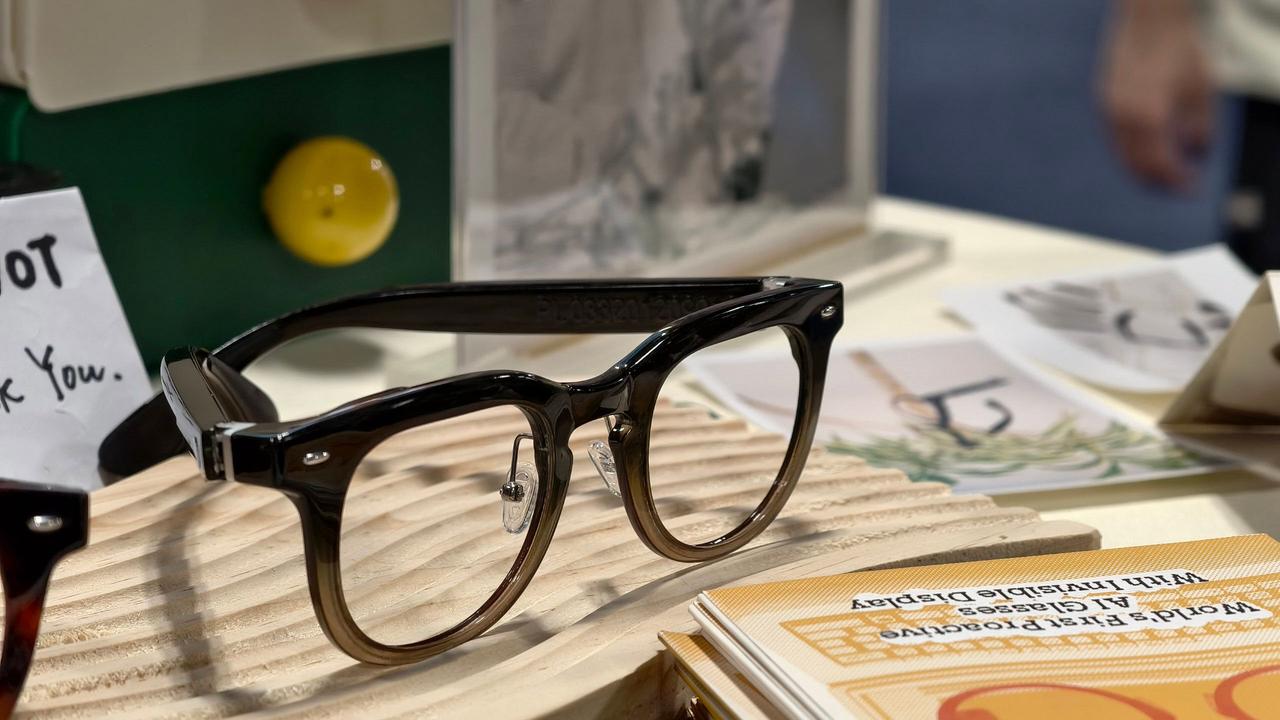Samsung Explores AI-Powered Wearables: From Smart Earrings to Necklaces
3 Sources
3 Sources
[1]
Smart earrings and necklaces? Samsung is looking into new types of wearables
Whatever the company lands on is expected to be a companion device to your phone, rather than a standalone product. Samsung already offers a long list of products in its mobile portfolio, including smartphones, tablets, and more. Still, the company is looking for ways to expand its mobile offerings. To that end, the company sees creating new types of wearables as its opportunity to grow. While speaking with CNN, the COO for Samsung's mobile experience division, Won-joon Choi, told the outlet that AI could enable a new wave of devices that don't require you to take out your phone. Samsung envisions that this wave of devices will be new types of wearables that it has yet to explore, like something you place around your neck, wear on your ears, or put on your face. Outside of smart glasses, you might be wondering what else the tech giant is considering. Samsung is currently "looking at all kinds of possibilities," Choi responded when asked if the company is actively looking into smart jewelry. "What do you wear? Glasses, earrings... necklaces, watches, and rings, something like those," Choi said. While other companies have tried to create AI products designed to replace your phone, like the Humane AI Pin or the Rabbit R1, that won't be the approach Samsung takes. The company reportedly wants its new wearable devices to be a companion to your phone, rather than a replacement or standalone device.
[2]
Samsung is exploring smart necklaces, earrings as AI-powered wearables
Samsung already has the smart ring and, coming soon, smart glasses. But what about earrings or necklaces? Samsung's COO for its mobile division Won-joon Choi told CNN that the company is exploring many different form factors for AI-powered wearables. "We believe it should be wearable, something that you shouldn't carry, [that] you don't need to carry," Choi said in an interview. "So it could be something that you wear, glasses, earrings, watches, rings and sometimes [a] necklace. The advancements of AI models that can handle more complex multi-step tasks with voice prompts is a natural fit for the wearable market. Instead of relying on a screen to type or tap, users can increasingly carry out screenless requests with minimal effort. And AI labs are banking on this becoming the future of how we use our gadgets. Samsung has reportedly accelerated its development of AR smart glasses, and teased its XR headset in collaboration with Google, dubbed Project Moohan. But it is also exploring devices beyond glasses and headsets. Choi told CNN that they're looking at all "kinds of possibilities," since some people might not want to wear glasses. OpenAI is also taking this approach with acquisition of iconic Apple designer Jony Ive. Few details are know, even less so since the company is now dealing with a trademark dispute over the name and brand. But leaked memos say the AI companion device is not XR glasses.
[3]
Samsung Is Looking into Making AI Necklaces, Earrings, and Other Wearables: 'All Kinds of Possibilities'
Samsung has already introduced smartwatches and smart rings, including a new AI smartwatch released earlier this week. A Samsung executive revealed that the company is looking into a new line of AI wearable devices that double as jewelry, including AI necklaces and earrings. Samsung's chief operating officer for mobile, Won-joon Choi, told CNN this week that the company is actively exploring a category of AI devices that "you don't need to carry," and can instead wear on your person. Related: Samsung's Newest Galaxy Gadget Aims To See 'How Productive You Can Be' "So it could be something that you wear, glasses, earrings, watches, rings, and sometimes a necklace," he explained to the outlet. Samsung is "looking at all kinds of possibilities," he said. Samsung's exploration may not result in products that it brings to market. Tech companies often create prototypes of products that never hit store shelves. Samsung's approach is to introduce devices that supplement phones instead of replacing them, a strategy it employed with its smartwatches and $399 smart ring, according to Choi. The company released a new smartwatch on Wednesday, the Galaxy Watch 8, which is the first smartwatch embedded with Google's Gemini AI. The $299 watch touts advanced fitness tracking, sleep coaching, and stress monitoring. Samsung isn't the only company to recently signal a push into AI devices. Earlier this week, OpenAI closed a $6.5 billion deal to buy io, an AI devices startup co-founded by former Apple designer Jony Ive. The acquisition, the largest yet from OpenAI, brought over io's 55-person team of engineers, designers, and researchers to OpenAI to work on wearable devices infused with ChatGPT. Meanwhile, Meta has experienced unexpected success with its Ray-Ban Meta AI smart glasses, which have sold over two million pairs since their October 2023 launch. The glasses allow users to ask questions to Meta AI, take pictures and videos, and answer calls. Last month, Meta introduced a waterproof pair of AI smart glasses geared towards athletes, the Oakley Meta glasses, and is reportedly working on another pair of glasses under the Prada brand. Meta CEO Mark Zuckerberg also previewed a prototype of glasses that project 3D avatars of people, or holograms, at the Meta Connect event in September. Related: Meta Invests Billions in World's Largest Eyewear Company After Ray-Ban Smart Glasses Success Other tech companies are following Meta into the smart glasses space. Google stated in May that it was dedicating $150 million to developing AI glasses with Warby Parker, with the new glasses to arrive after 2025. Apple is also reportedly developing its first pair of smart glasses and running focus groups to pinpoint what employees liked about smart glasses from competitors like Meta. Choi told CNN that Samsung is also working on smart glasses, which may launch later this year. However, Choi says that Samsung is seeking to expand into other kinds of devices with more discreet form factors. "We are actively working on glasses, but some people do not want to wear glasses because they change their look," Choi told the outlet. "So we are also exploring other types of devices." Not all AI devices have resonated with consumers. The startup Humane introduced the $699 wearable Ai Pin in April 2024 as a smartphone alternative, but the device, which users could pin to their clothing, fell flat with reviewers due to overheating and lagging responses. Humane shut down the Ai Pin less than a year after its release and sold parts of itself to HP for about $116 million in February.
Share
Share
Copy Link
Samsung is investigating new types of AI-powered wearables, including smart jewelry like earrings and necklaces, as companions to smartphones rather than standalone devices.
Samsung's Vision for AI-Powered Wearables
Samsung, a leader in mobile technology, is setting its sights on a new frontier of AI-powered wearables. Won-joon Choi, COO of Samsung's mobile experience division, revealed that the company is exploring innovative form factors for wearable devices that go beyond traditional smartwatches and rings
1
.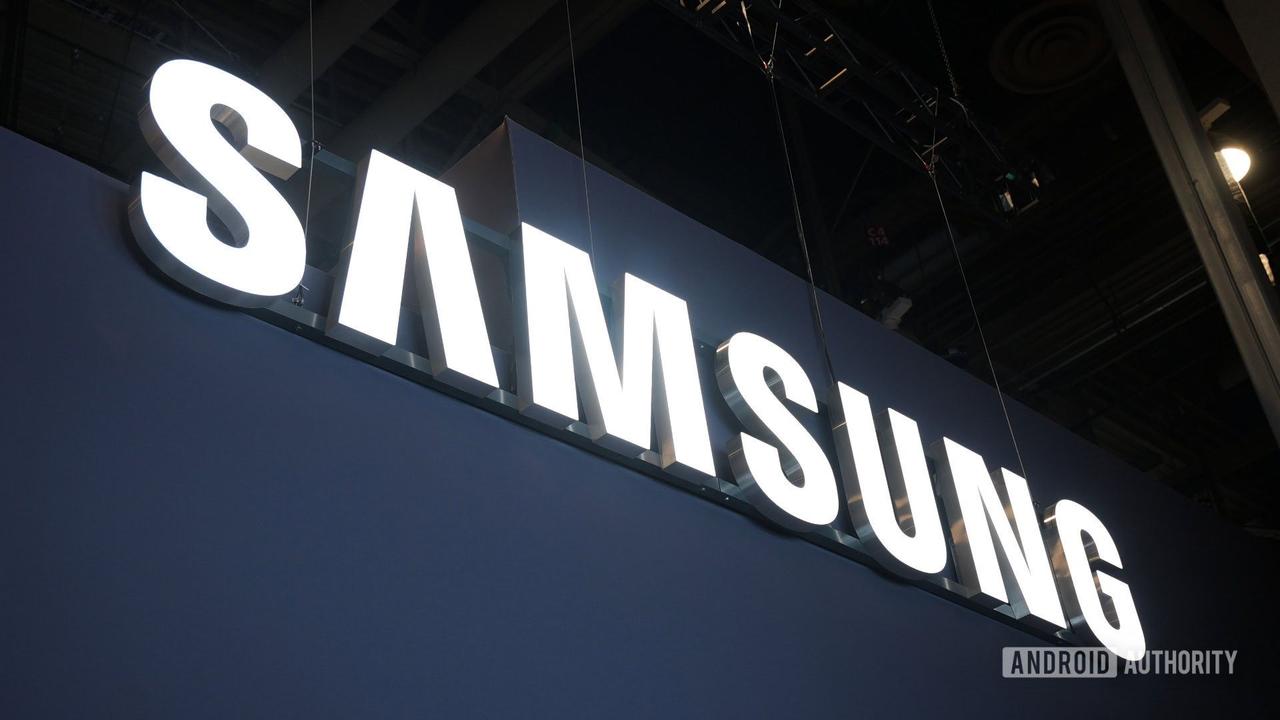
Source: Android Authority
Expanding the Wearable Ecosystem
The tech giant is considering a range of possibilities, including smart earrings, necklaces, and face-worn devices. Choi emphasized that these new wearables would be designed as companions to smartphones rather than standalone products
1
. This approach differs from other companies' attempts to create phone-replacing AI products, such as the Humane AI Pin or the Rabbit R1.AI-Driven Interaction
Samsung's exploration into new wearable types is driven by advancements in AI technology. The company envisions devices that don't require users to take out their phones, instead relying on AI for seamless, screenless interactions
2
. This aligns with the growing trend of AI models capable of handling complex multi-step tasks through voice prompts, making wearables an ideal platform for such technology.Market Context and Competition
Samsung's move comes amidst increasing competition in the AI wearables space. Other tech giants are also making significant strides:
- Meta has seen unexpected success with its Ray-Ban Meta AI smart glasses, selling over two million pairs since October 2023
3
. - OpenAI recently acquired io, an AI devices startup co-founded by former Apple designer Jony Ive, in a $6.5 billion deal
3
. - Google is investing $150 million in developing AI glasses with Warby Parker
3
.
Related Stories
Challenges and Considerations
While the potential for AI-powered wearables is exciting, Samsung acknowledges that not all consumers may be comfortable with certain form factors. Choi noted that some people might not want to wear glasses as they change their appearance, which is why the company is exploring various options
3
.Samsung's Current AI Offerings
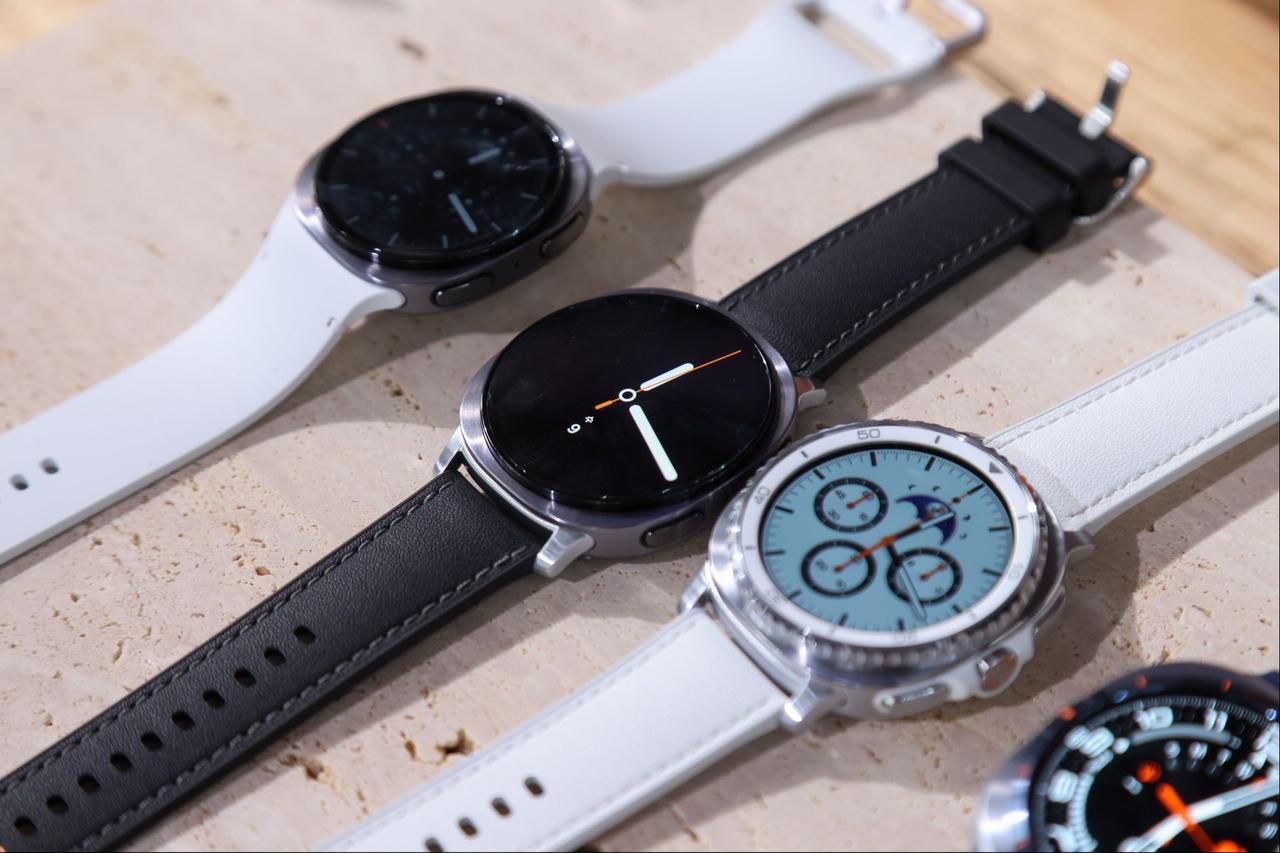
Source: Entrepreneur
Samsung has already made strides in the AI wearables market. The company recently released the Galaxy Watch 8, the first smartwatch embedded with Google's Gemini AI, offering advanced fitness tracking, sleep coaching, and stress monitoring features
3
.As Samsung continues to explore "all kinds of possibilities" in the AI wearables space, it remains to be seen which of these innovative concepts will make it to market. The company's focus on creating companion devices that enhance rather than replace smartphones sets an interesting direction for the future of wearable technology.
References
Summarized by
Navi
[1]
Related Stories
Samsung and Google Join Forces to Develop AI-Powered Smart Glasses
22 Oct 2025•Technology
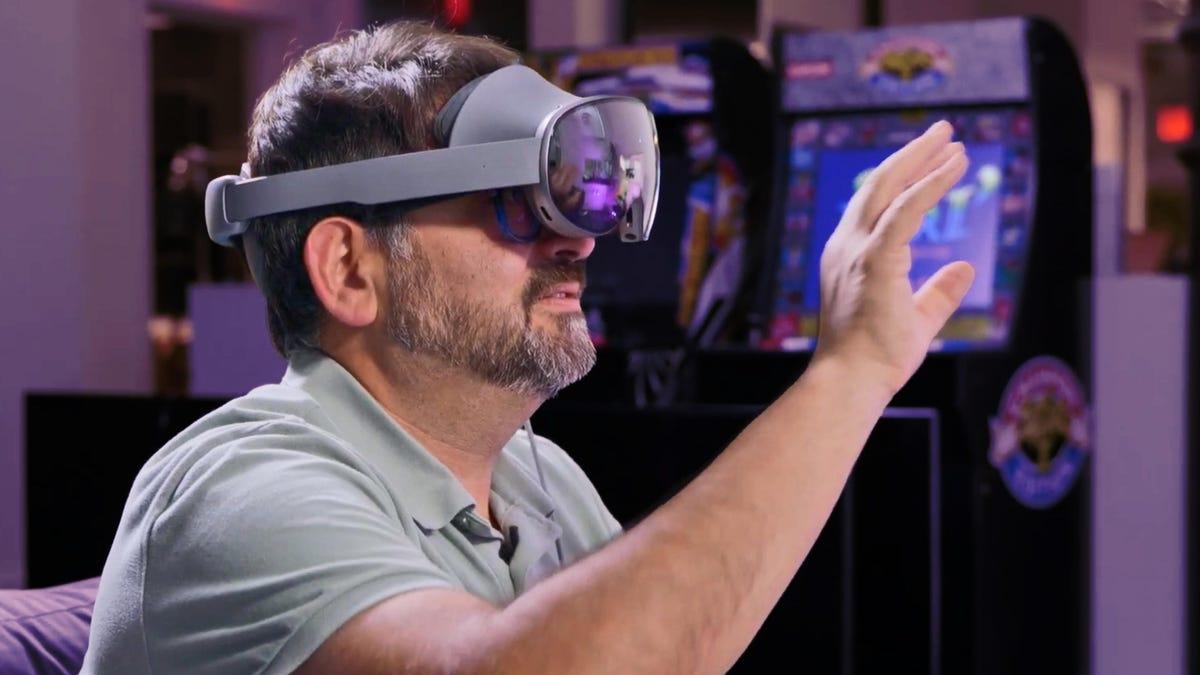
Samsung Galaxy wearables will detect early signs of dementia using AI-powered brain health monitoring
05 Jan 2026•Technology

Samsung Enters Smart Glasses Race with 2026 Launch Plans to Challenge Meta's Dominance
20 Nov 2025•Technology
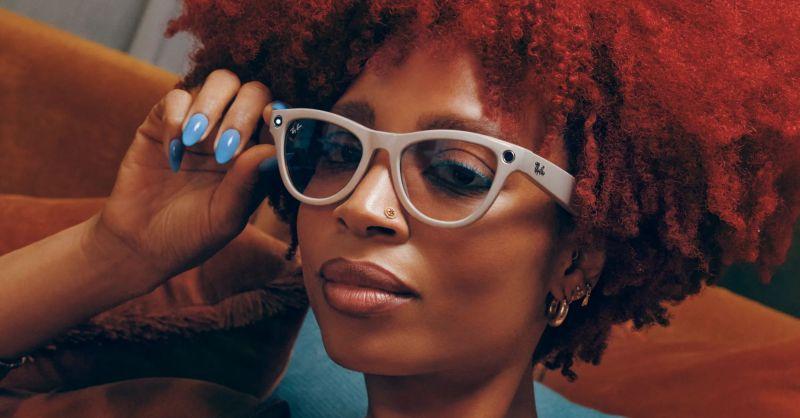
Recent Highlights
1
OpenAI secures $110 billion funding round from Amazon, Nvidia, and SoftBank at $730B valuation
Business and Economy

2
Anthropic stands firm against Pentagon's demand for unrestricted military AI access
Policy and Regulation

3
Pentagon Clashes With AI Firms Over Autonomous Weapons and Mass Surveillance Red Lines
Policy and Regulation

